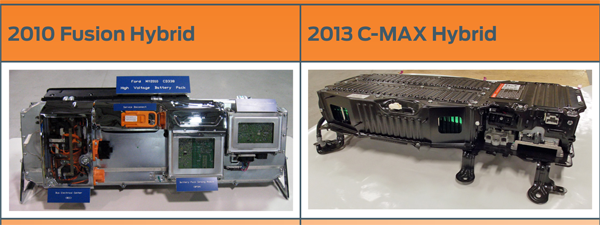A recent Ford survey found that battery reliability ranks as the single most important consideration for potential hybrid customers – topping 17 other factors, including fuel economy and safety features.1
What do most hybrid and EV buyers base their decisions on? The styling, the paint job, the touch screen? Nope – it’s the batteries. A recent Ford survey found that battery reliability ranks as the single most important consideration for potential hybrid customers – topping 17 other factors, including fuel economy and safety features.
Ford’s track record is pretty darn good so far – out of some 50 million nickel-metal-hydride battery cells that Ford has produced for vehicles such as the Escape Hybrid and Fusion Hybrid, it says that only six have failed to date.
The five electrified vehicles in Ford’s 2013 lineup all use a new generation of lithium-ion batteries, and to ensure that the new batteries work as well as the old ones did, the company has designed a new testing regime.

The Key Life Test lets engineers simulate 10 years and 150,000 miles of wear and tear in a lab setting in less than a year. Testers can put batteries through Phoenix-style 140-degree heat and Manitoba’s minus 40-degree chill, and can even simulate factors such as the location of a battery within a vehicle, and the various kinds of acceleration and braking that different drivers would apply. The system draws on 20 years of real-world data on how hybrid vehicles are driven.
“Recent studies show consumers are keeping their vehicles longer, and regulations in some regions now require batteries to carry warranties for greater distances,” said Kevin Layden, Director of Electrification Programs at Ford. “Fortunately, our tests take into account distances and conditions that go way beyond those normal requirements.”
Source: Ford

















































































